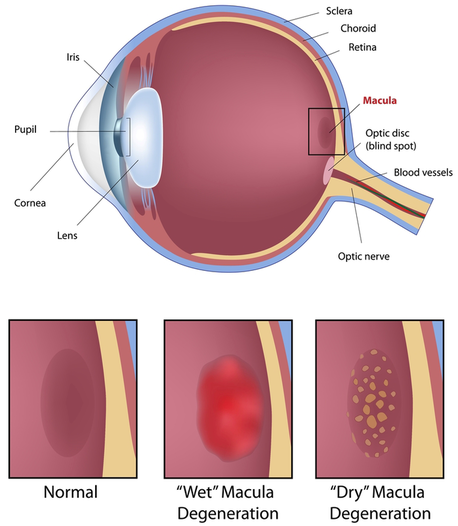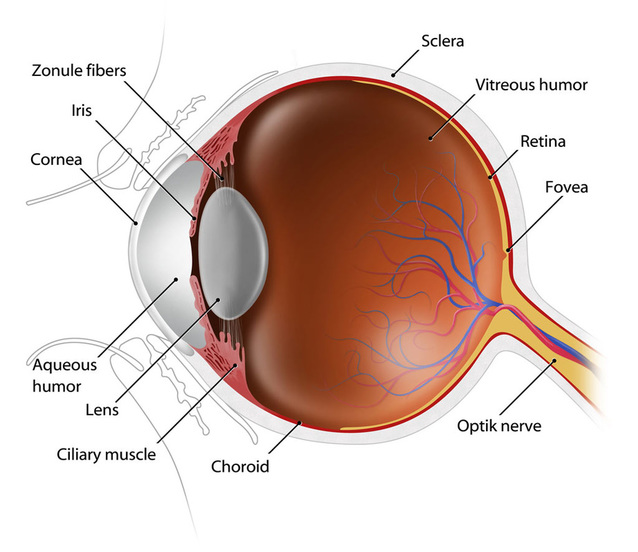|
Macula degeneration is a chronic eye disease that typically affects men and women over the age of 60. In fact, it is the leading cause of severe vision loss in men and women in that age group. In macula degeneration, the macula (central portion of the retina) deteriorates. The deterioration of the macula results in a loss of central vision. Because of the risk of vision loss, men and women over the age of 60 should monitor their eyesight regularly for signs of macula degeneration. Beginning treatment in the early stages of the disease may help prevent severe vision loss from occurring.
SymptomsIt is normal for a person not to experience symptoms of macula degeneration in the beginning stages of the disease. Macula degeneration may affect one or both of the eyes. The symptoms of macula degeneration typically develop slowly over time and may include:
|

- Trouble recognizing faces
- Experiencing increasing difficulty adjusting to levels of low light
- Diminishing color perception
- Changes in color perception
- Distorted center vision
- Requiring bright light in order to read or conduct other close work
- Words appear blurry when reading
- Central vision appearing to be hazy
Causes of Macula Degeneration
Macula degeneration, also known as age-related macula degeneration, typically results from aging. There are two types of macula degeneration: dry and wet. Dry macula degeneration, by far, is the more common of the two. The cause of dry macula degeneration is unknown. Wet macula degeneration is not as common as dry macula degeneration, but poses a greater risk to a person’s vision. A small number of patients affected by dry macula degeneration will also develop wet macula degeneration. The exact cause of wet macula degeneration is also unclear. Certain lifestyle and health factors can increase a person’s risk of developing macula degeneration; these factors include obesity, smoking, high cholesterol, and high blood pressure. Macula degeneration may also be hereditary.


